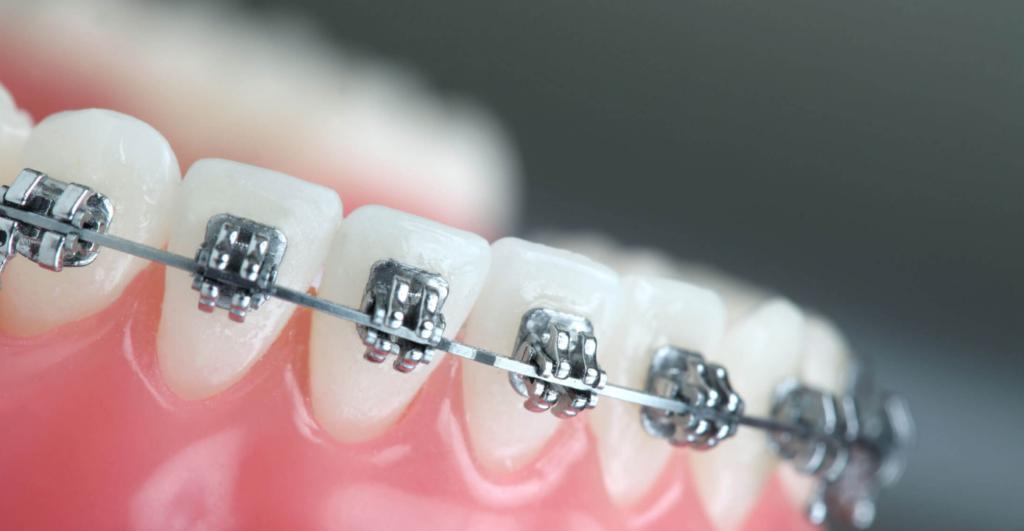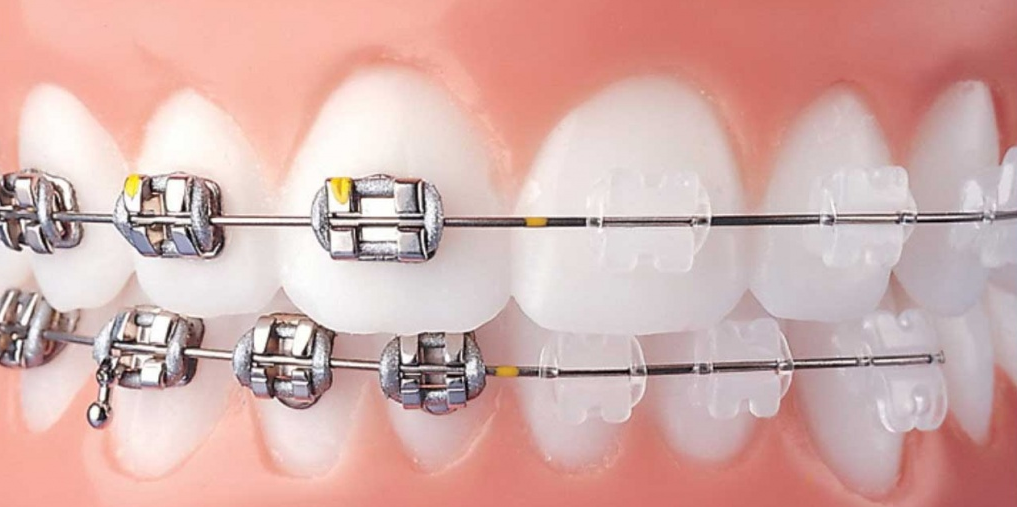When comparing the different orthodontic treatment options available, there’s one big question that we’re always asked: how are metal braces and ceramic braces different?
While these two treatment options share many similarities, they differ on quite a few points including aesthetics, usage, and cost. Read on to learn which of these treatment options is right for you.
What are metal braces?
Metal braces are one of the most common and effective orthodontic treatments on the market. They help to straighten teeth and correct bad bites using a series of stainless steel brackets, thin metal wires and subtle or colourful bands.
Metal braces have been around for about over 100 years but have evolved over time to be smaller and more effective. The sturdy nature of this fixed orthodontic treatment means that they can perform more complex tooth movements, making them a popular choice for many patients.

What are ceramic braces?
As the name suggests, ceramic braces are the same as metal braces except that they’re made from a tooth-coloured porcelain material instead of stainless steel. When paired with a white archwire and clear brackets, such braces can appear much less obvious. They’re often referred to as clear braces and are a popular choice among appearance-conscious adults.
As ceramic braces share a similar design with traditional metal braces, they function in the same way, although treatment times may be lengthier due to the extra friction in the system. However, they’re able to treat the same type of complex malocclusions and help correct bad bites.
Are ceramic and porcelain braces the same?
Yes, ceramic and porcelain braces are exactly the same. Some people like to use the words ‘ceramic’ and ‘porcelain’ interchangeably when talking about ceramic braces, but there’s no other difference between the two.
Why get ceramic braces?
Ceramic braces are particularly popular among adults who are looking for a less obvious treatment option than traditional braces. The use of clear or tooth-coloured products in the appliances makes them both subtle and effective. In addition, if you have a metal allergy but need your orthodontic treatment to complete complex tooth movements, such as gently pulling a tooth down into alignment, then ceramic braces may be a better option.
Do metal braces cost the same as ceramic braces?
Due to the varying cost of materials, ceramic braces usually cost more than their metal counterpart. However, the difference between the two treatment options may not be significant. Depending on the extent of treatment required, you may have braces for anywhere between six months and two years. The duration of your treatment is based on case complexity rather than by the type of appliance used.

Is it better to get ceramic or metal braces?
Both types of braces operate the same way – it’s just a different material that’s being used. While ceramic is a weaker material than metal, ceramic braces are engineered in such a way that they’re just as effective as their metal counterparts. When due care is taken, getting ceramic braces won’t negatively affect your treatment.
Do ceramic braces take longer than metal?
In short, no. Treatment with ceramic braces does not generally take longer than metal braces because treatment time primarily depends on the individual patient.
Can you switch from ceramic to metal braces?
It is possible to switch from ceramic to metal braces. However, there will be added cost and it can be quite a lengthy procedure as you’ll need to go through the full removal process followed by re-application of the metal appliances. It is best to discuss your options from the outset with your orthodontist and pick the appliance that will be best suited to your needs.
Find a local orthodontist near you today
These are by no means the only treatment options available, but to make an informed decision about which will best suit your needs and budget it is best to make an appointment with an orthodontist.
If you want to chat to a local expert about if ceramic or metal braces are right for you, then you can use our Finder Tool to search for a local orthodontist near you.











